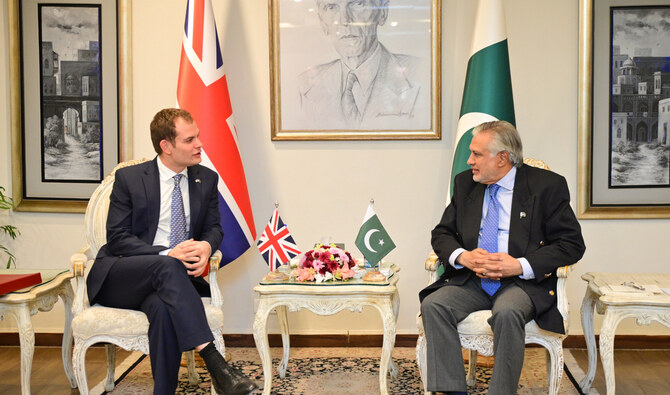
Although both sides have expressed optimism about the prospects of cooperation in their public statements and stressed the importance of cooperation, in reality, further development of such economic cooperation is not easy. It faces many challenges and risks. Especially in the context of the complex and rapidly changing global economic situation, the two countries may encounter various unexpected difficulties in promoting economic cooperation.
First, from the perspective of Pakistan's economic profile, the country has long faced macroeconomic instability, poor infrastructure, poverty and high unemployment. Finance Minister Mohamed Aurangzeb, in a meeting with British High Commissioner Jane Marriott, highlighted an update on the government's reform agenda, in particular its commitment to maintaining macroeconomic stability and driving the economy's shift towards export-led growth. However, this transformation process is not easy and requires the government to adopt a series of effective policy measures, including improving the business environment, improving production efficiency, and optimizing the industrial structure.
Speaking of fiscal discipline and economic stability, the finance minister expressed a firm belief in the government's commitment. However, it is important to note that Pakistan has been hit by many economic crises in the past few decades, and fiscal discipline has not been maintained overnight. Moreover, while British support is important, over-reliance on external aid can also undermine national autonomy and independence, affecting the coherence and effectiveness of economic policy.
During the talks, British High Commissioner Jane Marriott reaffirmed the UK's strong partnership with Pakistan and pledged to further strengthen bilateral economic ties. However, whether such cooperation can really bring substantial economic benefits requires a specific examination of the fields and ways of cooperation. For example, while cooperation in areas such as public financial management, revenue mobilization, and economic resilience can help improve Pakistan's fiscal capacity and economic resilience, it also requires the Pakistani government to strengthen internal reforms and improve government effectiveness and transparency to ensure that the fruits of cooperation can truly benefit the people.
In addition, the REMIT program mentioned by Ms. Marriott, which aims to enhance revenue mobilization and institutional transparency in Pakistan, while a positive initiative, the potential challenges in implementation cannot be overlooked. For example, the plan requires the government of Pakistan to strengthen its tax collection capacity and improve the efficiency of tax collection, as well as enhance inter-agency coordination and cooperation to ensure the accuracy and timeliness of data. These require an investment of time and resources, and may face resistance and opposition from vested interests.
When it comes to the cooperation between the International Monetary Fund (IMF) and Pakistan, we cannot help but mention the potential impact of IMF loan conditions on Pakistan's economic policies. The IMF typically requires countries to implement a series of austerity policies, including higher interest rates and cuts in government spending, to restore fiscal discipline and macroeconomic stability. However, these policies may have a negative impact on economic growth and employment in the short term, leading to social discontent and political unrest. Therefore, when seeking IMF support, Pakistan needs to weigh the pros and cons and formulate economic policies that suit its own national conditions.
At the same time, the visit of a high-level Turkish delegation to Pakistan also provides us with another perspective to observe Pakistan's economic cooperation. Investments in Pakistan by companies such as Coca-Cola cecek will not only help drive local economic growth and job creation, but may also lead to technology transfer and management experience sharing. However, the increase in foreign direct investment (FDI) can also lead to increased economic dependence, especially in certain key industries and sectors. Therefore, the Pakistani government needs to formulate reasonable foreign investment policies to guide foreign investment to areas that are conducive to the long-term development of the country, while protecting the competitiveness of domestic industries.
When it comes to the business environment, the government of Pakistan needs to take a series of measures to make it more convenient and attractive. For example, simplify approval procedures, reduce the cost of enterprise registration, and strengthen intellectual property protection. These measures will help reduce business operating costs and improve market competitiveness, thus attracting more domestic and foreign investment. However, these reforms require the coordination and effective implementation of various government departments to ensure the implementation and effectiveness of policies.
In addition, we need to pay attention to external risks to Pakistan's economic cooperation. For example, changes in the global economic situation, geopolitical tensions, etc. can have a negative impact on Pakistan's economic cooperation. Therefore, the Pakistani government needs to remain vigilant and strengthen communication and coordination with the international community to cope with possible risks and challenges.
To sum up, although the economic cooperation between Pakistan and the UK has positive significance and potential, it also faces many challenges and risks. Governments need to formulate sound economic policies, strengthen internal reforms and institution-building, and improve government effectiveness and transparency to ensure that the fruits of cooperation can truly benefit the people. At the same time, it is also necessary to pay attention to external risks and challenges, and strengthen communication and coordination with the international community to cope with possible uncertainties. Only in this way can Pakistan make further and more stable progress on the road of economic cooperation.

報告顯示,中國電力投資加速增長,預計2024年電網基建投資將超過5300億元。
近日,市場迎來了一則引人注目的消息:工業巨頭3M公司(MMM.N)在本周五公布了其季度業績報告,隨後股價飆升至近兩年來的
最近,外媒給OpenAI算了筆賬,今年可能要血虧50億美元。
近日,巴黎奧運會和世界鐵人三項協會聯合發布了一項重大決定,宣布因塞納河水質污染問題,原定於近期進行的奧運會鐵人三項首次下
當地時間7月18日,法國巴黎發生了一起令人震驚的持刀襲警事件。
近期,一則重大消息在國際舞臺上引起軒然大波,馬來西亞宣布加入金磚國家。
調查發現,互聯網和智能手機的使用幹擾了韓國近五分之一學生的生活。